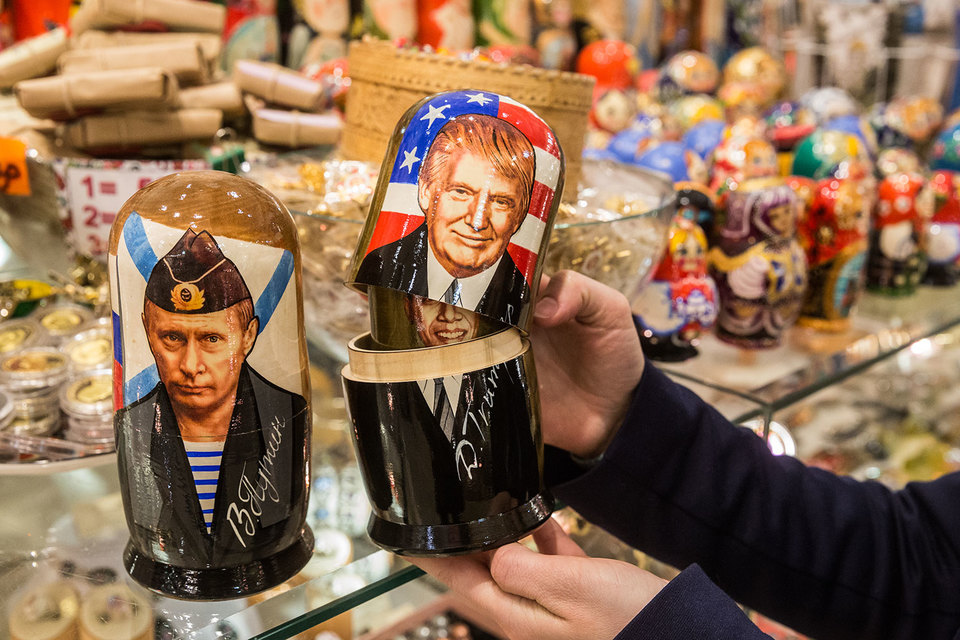Vladimir Putin has achieved a major goal with plans for a summit between him and US President Donald Trump in Europe sometime in July now going forward. That meeting effectively ends the international isolation the Kremlin leader has experienced since he invaded Ukraine and annexed Crimea
.
Putin goes into the meeting, Lilia Shevtsova says, with great expectations given the willingness of many European leaders to come to him, their anger at Trump over trade and the Iran agreement, and the apparently increasing fatigue many in the West feel about the current hard line against Russian aggression.
That has led to hopes among Putin and his supporters for some kind of “grand bargain” or “big deal” with Trump that will involve forcing Ukraine to accept Russian conditions and ending Western sanctions on Russia, steps that not surprisingly many in Ukraine and in the West clearly fear, the Russian analyst continues.
But both these hopes and these fears are almost certainly misplaced, Shevtsova says. “The readiness of the West for dialogue with Moscow does not mean retreat.” Some governments like those of Hungary and the Czech Republic have cozied up to Putin, but nonetheless, they continue to observe the sanctions regime against Russia.”
European leaders like Angela Merkel and Emmanuel Macron may trade “compliments” with Putin, “but both reaffirm for those who may not understand: Europe will not lift the sanctions on Russia until there is progress on fulfilling the Minsk agreements on Ukraine.” And the G-7 has even agreed to create a rapid reaction force to be able to counter Moscow.
At the same time, she says, it is the height of naivete to think that Trump will make a final break with Europe and seek friendship only with Russia. That isn’t going to happen: the Transatlantic “family” has had many disputes, but the community “has survived all the storms.” It is implausible to think that will change, however unpredictable Trump likes to be.
And the US president who prides himself as a deal maker would have to be offered something tangible to agree to any major change on his part. Putin has little to offer, and while some might be satisfied with promises of future action as was the case after Trump’s Singapore meeting with North Korea’s Kim Jong-Un, that won’t cut it in this case.
“By attempting to keep Ukraine from flight to Europe,” she continues, “Russia has buried the European vector of its development. How could one be a European country if one tried to keep one’s neighbor from making a European choice?” That is the underlying reality; and no one summit is going to change it.
Shevtsova continues: “However much the Kremlin wants to force the world to forget about Ukraine, that isn’t going to happen because the West isn’t going to give anyone the right to break windows in its neighborhood, because the Kremlin constantly talks about Ukraine and makes it a domestic factor, and because restraining Russia has become not only a key element of Ukrainian identity but a key principle of European security.”
Putin thought that by using force against Ukraine to prevent it from realizing its European choice, he could restore Russia’s greatness and “imperial power.” But by “a bitter irony” for him, his efforts to “preserve this Great Power quality” have brought and will continue to bring “crushing” consequences – including at the upcoming summit.
Read More:
- New footage shows Russian PMC Wagner involved in crucial 2015 Debaltseve battle in Ukraine
- Crimea’s growing water problem might provoke new Russian attack against Ukraine
- Fake concern about “fake news” is a part of Kremlin’s deception strategy
- Putin’s rise had 13 ‘fathers’ and 12 serious opponents, Illarionov says
- Three largest Russian militant training facilities identified
- Week’s disinformation: NATO maneuvers “killed a child,” Ukraine to run “provocations” amid World Cup
- Two dangerous proposals on Crimea with even more dangerous consequences
- What do you call a successful terrorist? Your excellency!
- Putin seized Crimea with regular army but outsourced action in Donbas
- The 75 Russian military units at war in Ukraine

